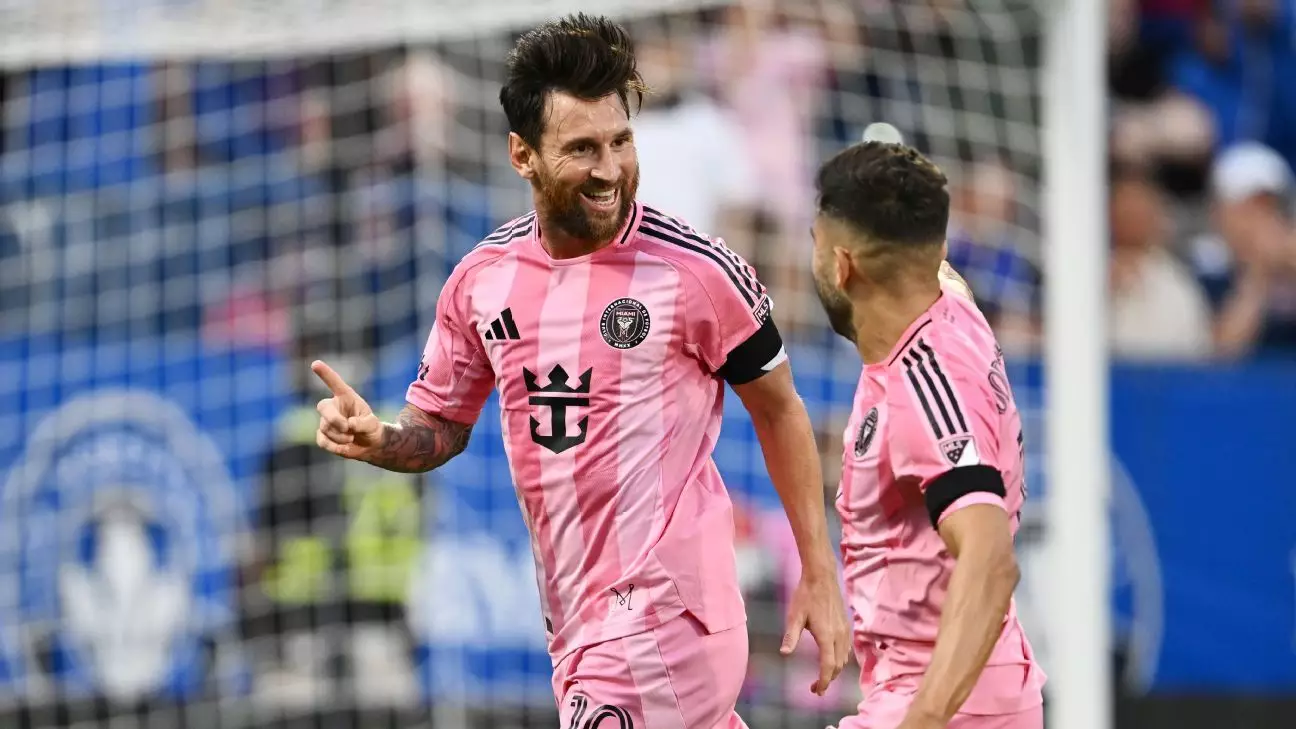The recent controversy surrounding Lionel Messi and Jordi Alba’s absence from the MLS All-Star Game reveals a crucial tension within the sport—balancing commercial appeal with the fundamental rights and well-being of players. While popular players like Messi, whose global influence transcends club loyalty, are pivotal for league expansion and brand recognition, their health and competitive integrity seem secondary to scheduling demands and media spectacle. The league’s decision to suspend Messi and Alba for opting out of the All-Star Game appears shortsighted and reflects a broader failure to prioritize athlete health over fleeting promotional opportunities.
The league’s stance highlights a concerning attitude: that star power should be sacrificed at the altar of business interests. Penalizing high-profile players for skipping an exhibition match exposes a rigid, arguably outdated philosophy that the show must dominate player welfare. For a league still striving for credibility and global respect, such punitive measures sag beneath the weight of their implications—namely, that players are mere commodities rather than vital assets whose health warrants protection. Ultimately, this approach risks alienating the very talent and fanbases that have been instrumental in elevating MLS’s profile.
Player Fatigue and the Flawed Scheduling Paradigm
Javier Mascherano’s comments illuminate a systemic flaw: the scheduling of exhibition matches amid grueling league play shows a lack of regard for athletes’ physical limits. His assertion that the All-Star Game “should not be scheduled between tournaments” reflects a growing awareness that such events can be both unnecessary burdens and potential injury risks. Messi’s fatigue—despite not being injured—underscores a crucial point: top-tier athletes are often pushed beyond sustainable limits because of a calendar that prioritizes spectacle over sustainability.
This congested schedule is a ticking time bomb for player health, yet league organizers continue to ignore these concerns at their peril. The instance of Messi and Alba returning to training only days after consecutive matches underscores how little regard is given to recovery time. The fact that Alba suffered a knock during the Red Bulls game further emphasizes the dangerous consequences of a relentless schedule. Ignoring these signs not only jeopardizes individual careers but also threatens the league’s overall competitiveness and credibility in the long term.
The Political Economy of Football: Commercial Power vs. Player Rights
MLS’s decision to sanction Messi and Alba reveals a tacit prioritization of commercial impact over the integrity of sport. The league’s commitment to maintaining a spectacle that benefits sponsors, broadcasters, and franchise owners seems to clash with the fundamental ethos of competitive sportsmanship—the health and consent of the players. This dichotomy underscores the broader issue: football’s transition from a game of artistry and endurance to a corporate-controlled enterprise driven by schedules and appearances.
Promoting high-profile events like the All-Star Game without regard to existing player fatigue can backfire. Fans may initially be excited by Messi’s participation, but as injuries mount and player burnout becomes evident, trust in the league’s stewardship could erode. Moreover, penalizing star players for protecting their bodies risks alienating the very athletes that attract viewers worldwide, thereby undermining the league’s goal of sustainable growth.
Player-Centric Reforms as the Path Forward
For MLS to mature into a truly world-class league, it must pivot from its current reactive policies to a proactive, player-centric framework. Recognizing that players are the league’s greatest assets, the league must overhaul its scheduling philosophy. Strategic planning should prioritize rest days, limit travel-intensive fixtures, and schedule exhibition matches with proper consideration for athlete health. The league’s recent prioritization of spectacle at the expense of safety suggests a need for fundamental reforms rooted in athlete welfare, not just commercialization.
Furthermore, clubs like Inter Miami should embrace a culture that values player health over short-term gains. Javier Mascherano’s vocal criticisms point toward a growing consciousness within coaching ranks, but league policies must also evolve. By fostering environments that respect recovery and provide genuine rest, MLS can improve player longevity, elevate the quality of play, and ultimately forge a more resilient, reputable brand on the global stage.
The debate ignited by Messi’s absence encapsulates a pivotal moment for American soccer. It challenges stakeholders to rethink priorities, placing sustainable player management at the core of league philosophy. Only then can MLS transcend its current growing pains to become a league that champions both excellence and athlete well-being simultaneously.


Leave a Reply